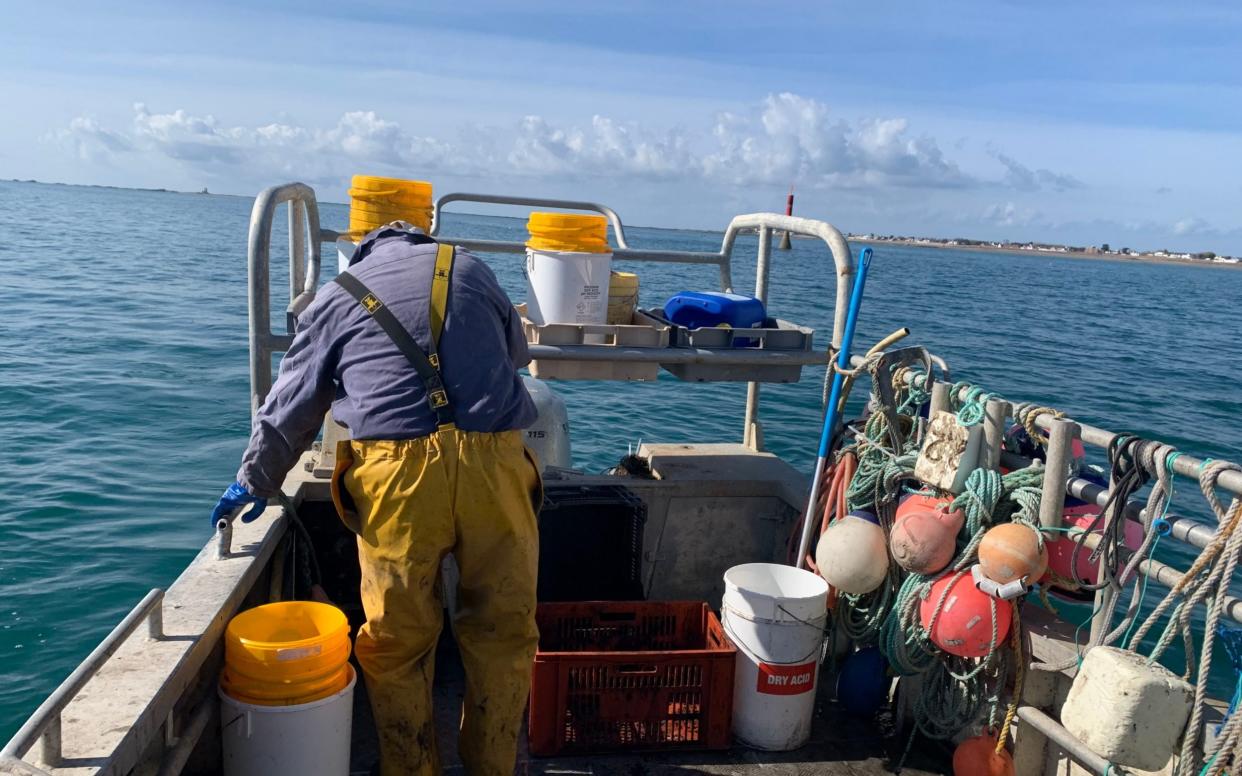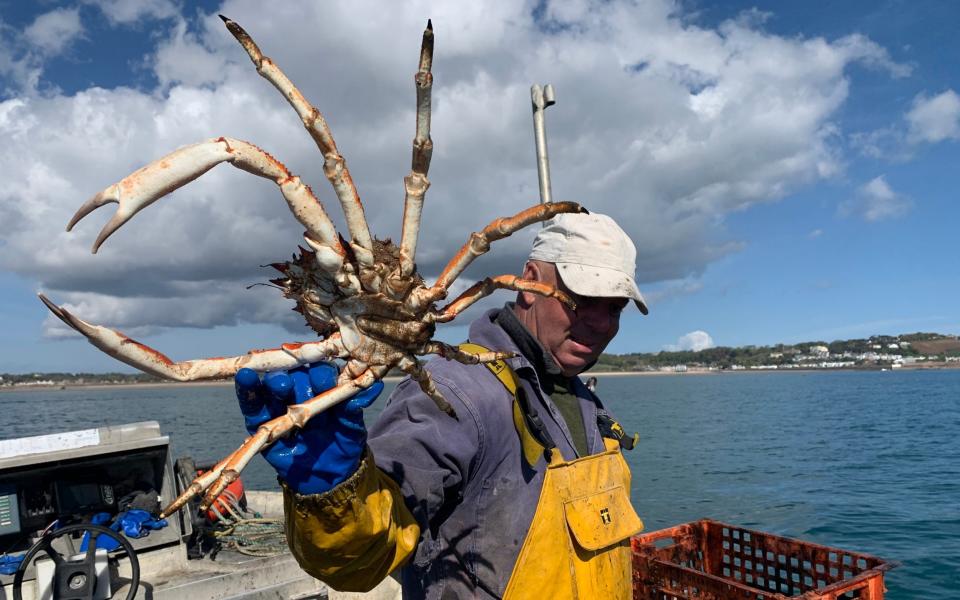Calm after the storm as Jersey's fishermen head back out to sea

Jersey's main fishing quay was still and serene on Friday morning as fishermen prepared their boats to head out on the water.
The peace was a far cry from events the day before, when around 60 French vessels attempted to block the island’s main harbour, St Helier, in protest at the licensing restrictions.
The fishermen let off flares, displayed banners including one that said "Jersey Government kill us" and caused delays to the island's freight shipping service.
Leon Dessoude, 60, who has fished his whole life but has done so commercially for around 15 years, said he understood why his French counterparts were angry.
"They did have a free range and they did do what they liked," he told The Telegraph as he boarded his boat with his Jack Russell, Luna.
But he added that he thinks the protest may be a good thing for Jersey fishermen who have faced restrictions to what they can now land in France post-Brexit.
“When I heard that the gunboat was coming and the Government was involved I thought well, whatever Jersey does now with the French there could be reciprocal effects," he explained, saying the Government would now be watching what Mr Gorst does in response to the row.
Asked whether he thought any concessions would be given to the French fishermen, he added: "Watch this space."
Jersey and France have fished in each other's waters since 2000, under the Bay of Granville Treaty, but the treaty became void following Brexit in December.
In the new licensing system, which began on May 1, French vessels had to apply for permits from the Jersey Government. But French officials say additional restrictions were added, including where the vessels can fish and for how long.
In response, the flotilla of French ships staged their protest on Thursday morning. It resulted in a delegation of the Jersey government meeting with some of the fishermen to hear their grievances. Mr Gorst told The Telegraph it was a "listening exercise" and it became apparent there had been a "problem in communication" over the licences.
He said the Jersey government would now work with the UK, EU and France to try and resolve the issue. But Mr Dessoude voiced concern that, if the issues are not resolved soon, it could have a damaging impact on the Jersey fishing fleet.

The Regional Fishing Committees of Normandy and Brittany called for a ban on Jersey catch being landed in Granville earlier this week, a measure reportedly supported by the Mayor of Granville.
Only around 10 per cent of the lobsters caught by Jersey boats are sold onto the island, the rest are usually sold into the French market, Mr Dessoude said.
In his 60s and with no financial dependants, Mr Dessoude said he could afford to not go out daily, but the row is having a "knock-on effect" for his business. With larger boats unable to take their hauls to France they are selling lobsters in Jersey, meaning demand is even lower.
He fishes for cuttlefish in April and May but said that, due to bad weather, the hauls have been low this year. "I'm more worried about the younger generations," he explained, adding that it is a huge expense to buy and run a fishing vessel and warning: "If they don’t remove the ban this week, some of the small boats could go under,."
Don Thompson, the president of the Jersey Fishermen's Association, said "all the focus" in the row had been on the French fleet, adding: "They've actually been given four months of amnesty to carry on fishing whilst they make applications for licences to fish in our waters... whilst our fishermen have been banned from landing into France.
"The real hardship genuinely is on this side, and I'm seeing my colleagues going out of business, fishermen that have done nothing else all their life, made a commitment to the industry since they were very young, having to sell their boats and walk away from the industry."

